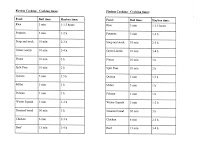Here's the tips from the "Saving Money" class from Enrichment (I added some of the advice given in class; feel free to add more comments!)
* Use it up, wear it out, make it do, or do without! *
* Remember the Lord's Law of Abundance *
(Jacob 2:12–19)
Manage Your Funds1. Whatever your income, always live below your means
2. Pay tithing
3. Save, save, save!
4. Save your change (a quart jar holds about $50)
5. Save for an emergency to avoid credit debt
6. Make money work for you: Shop for the best banks, insurance policies, and investments
7. Make credit cards work for you: Get one with bonuses and pay the balance each month
8. Raise financially independent children
9. Get out of debt and stay out (interest is expensive!)
10. Create a budget and stick to it
11. Never turn down free money: If your employer offers matching for retirement plans, take it!
12. Cash in rebates—read the fine print and get your money
13. Organize! to avoid buying things you already own
14. Beware of “shopper’s momentum”: Pay for each purchase separately—you’ll spend more carefully
15. Write down every dollar you spend
16. Give and share
Recycle17. Rethink: holey socks, raggedy jeans and shirts—pillows, sock puppets, jean quilts, purses…
18. Compost food scraps to make your own fertilizer
19. Wash and reuse: plastic silverware, butter tubs, ziplock baggies, bread bags, produce bags…
20. Use the back side of papers
21. Consider a roast an investment
22. Repurpose leftovers: Make them into casseroles and soups, stuff them into enchiladas or ravioli…
23. Use tennis balls instead of dryer sheets (cut a slit in them first)
24. Paint or reupholster old furniture
25. Two-liter soda bottles: Punch holes in the bottom and “plant” those beside seedlings to water the plant at root level.
26. Make candles from broken crayons
27. Turn old light bulbs into ornaments with paint
28. Refill water bottles from your sink
29. Tin cans make great pencil holders
30. Donate yarn, egg cartons, spice containers, etc.: Ask elementary school, preschool, or day care teachers if they can use these items for projects
Spend Smart31. Maintain your car and drive smart: fuel filter, oil changes, tire pressure, gas treatment, easy on the gas peddle…
32. Wait for the best time to purchase: get gas on Tuesdays; dry clean your drapes in January, July, or August; buy last year’s car in Sept. or Oct., even Jan.; buy bulk food in spring and fall; rent an apartment in Oct. or Nov.
33. For sewers: Sew inside seams with large spools of white or black on sale; save colors for top stitching; buy sheets for cheap fabric
34. Buy the best quality you can afford so you don’t have to purchase as often
35. Shop Smart: Watch ads, use coupons wisely, make a list, shop sales and off season, and do your research on big ticket items
36. Be willing to negotiate (and know when you can)
37. Get a local education—in-state tuition costs much less—and search out scholarships
38. Evaluate your memberships—do you use it often enough to justify the expense?
39. Buy in bulk but store in smaller quantities—you’ll use less if going off a smaller amount
40. Shop at thrift stores, check classified ads, and use websites like craigslist and freecycle
41. Grocery ads run on a 12-week cycle; watch and wait for the best price, then stock up
42. Dollar Stores: Pick up good bargains, but if you spend too much per visit, avoid them
43. Make a menu for your meals and stick to your list of ingredients when shopping
44. Sign up for email lists to your favorite stores to get coupons and be notified of sales
45. Find a farmer and see if you can purchase, say, 1/2 a cow
46. Hit Wal-Mart early in the morning to get the clearance deals
Be Frugal45. Use ivory bar soap or Fels Naptha to rub out stains; make and use your own detergent
46. Stay healthy to avoid added medical bills and higher insurance premiums
47. Use your kitchen for a home spa (e.g., olive oil for dry skin, dish soap for bubble baths)
48. Try the Rule of Half: Cut what you normally use in half (e.g., shampoo, trips to the store, food on your plate) each time until it’s not enough, then go back to the last amount that worked
49. Wait a while to shower, then brush your hair really well to condition it
50. Cook from scratch as often as you can (including baby food) and make your own mixes
51. Ration: toilet paper, toothpaste, snacks, gas…
52. Keep appliances, large and small, clean and in good repair
53. Try cloth diapers
54. Take home and use extra napkins and ketchup packets
55. Check home insulation, windows, doors, roof, etc. to save on heating and cooling
56. Sometimes making it yourself isn’t cheaper—know the difference
57. Eat lower on the food chain
58. Vacuum for longevity: refrigerator coils, air filters, computers, furnace filter, couch, mattresses…
59. Unplug appliances and turn off power strips when you’re not using them (some electronics use electricity even when they’re turned off)
60. Cut the meat you eat in half and use stretchers like beans, wheat, or extra sauce
61. Learn how to fix things yourself so you don't have to hire someone or buy new
62. Turn down the thermostat and wear sweaters

















































